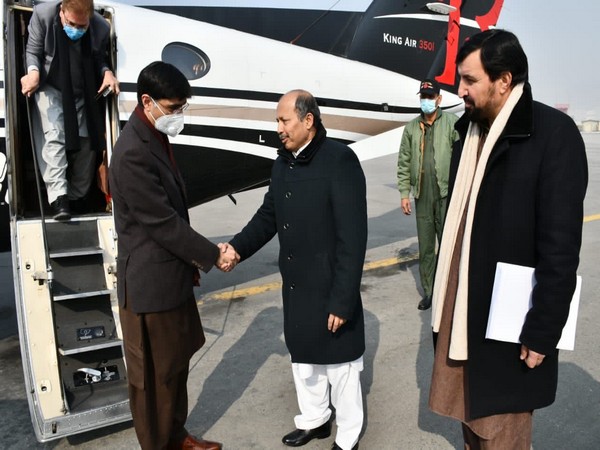Pak NSA's Afghanistan visit disappointed Imran govt as its security concerns went unaddressed
The recent visit of Pakistan's National Security Adviser Dr Moeed Yusuf to Kabul did not turn out to be fruitful to Islamabad as expected as the security concerns of the Imran Khan government were not properly addressed by the new rulers in Afghanistan, according to a media report.

- Country:
- Afghanistan
The recent visit of Pakistan's National Security Adviser Dr Moeed Yusuf to Kabul did not turn out to be fruitful to Islamabad as expected as the security concerns of the Imran Khan government were not properly addressed by the new rulers in Afghanistan, according to a media report. It is no secret that the real disappointment for Pakistan with NSA's Kabul visit came in the security-related issues as Dr. Yusuf could not meet with the Taliban PM, Mullah Hassan Akhund, and Deputy PM, Mullah Abdul Ghani Baradar, the official statements from the two sides did not make any reference to the Durand Line and cross-border terrorism. Yusuf's efforts to secure the release of Tariq Haqqani, son of Minister for Refugees Khalil-ur-Rehman Haqqani, along with three Pakistani Inter-Services Intelligence (ISI) officials with Mullah Baradar-led group in Kabul, also failed, according to the Portal Plus.
The visit took place after the Taliban members had stopped the Pakistan military from erecting the barbed fences along its border with Afghanistan's Nangarhar province. The two countries have also years-long issues over the Durand Line which decides the border between the two countries. Moeed Yusuf, led a delegation to Kabul last month to discuss with the Afghan authorities border fencing, security issues and stalled joint infra projects. Dr Yusuf, who also heads the Afghanistan Inter-Ministerial Coordination Cell, a policy formulation and implementation forum, called on Afghan Deputy Prime Minister (PM), Abdul Salam Hanafi, and Foreign Minister, Amir Khan Muttaqi, besides participating in delegation-level talks with the other government ministers and officials, according to Portal Plus.
Earlier in January, Moeed had made a failed attempt to visit the country for a discussion with the Taliban leadership on the afore-mentioned issues, according to Portal Plus. Prior to Yusuf's visit, Islamabad had assessed highly centralized decision-making within the Taliban regime and lack of recognition from the international community as the two major hurdles in developing economic ties with Kabul. Though the Pakistani side was able to get the Taliban's audience on some trade-related issues, it failed to achieve any substantive outcome. Acting upon the demand of Pakistan's Chamber of Commerce & Industries, the delegation requested Afghan authorities to facilitate a study of Hajigak Iron Ore Mines in Afghanistan. The mines are said to have the potential of becoming the long-term cheap source of iron ore for Pakistan's steel industry. While the Afghan side made no commitment on the issue, the Afghanistan Chamber of Industries & Mines lamented that Pakistan was hindering exports from Afghanistan, while trade between the two countries had plunged from USD 3 billion to USD 1 billion during 2021.
The Portal Plus further stated that in absence of cooperation from Taliban, Pakistani government and establishment are confronted with possibilities of more disturbing alliances. According to some reports appeared in Sputnik International quoting a TTP militant, the organization is also training fighters from the Balochistan Liberation Army (BLA) at its facilities located along the said border. In return, BLA is said to be providing TTP an access into Balochistan, a region that is acting as a refuge for TTP fighters leaving the Pakistani Army's counter-insurgency operations in Khyber Pakhtunkhwa. (ANI)
(This story has not been edited by Devdiscourse staff and is auto-generated from a syndicated feed.)










